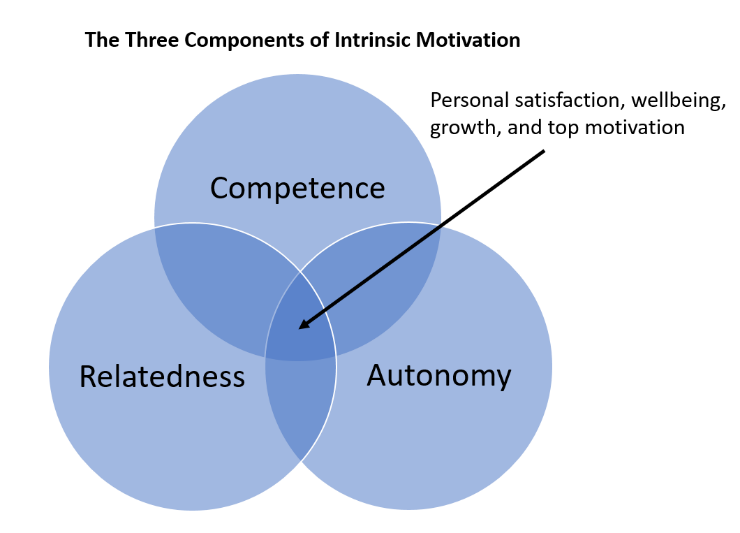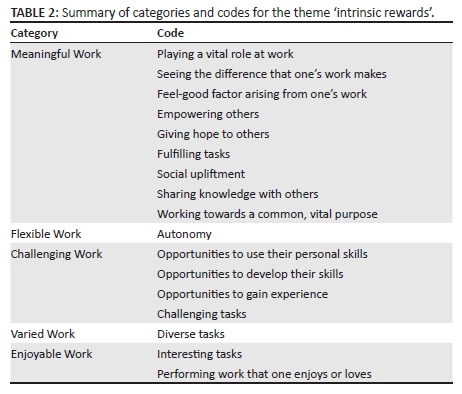

The authors analyzed real-world data from a representative sample of over 200,000 U.S. The second article is a recent study by Yoon Jik Cho and James Perry. See, for instance, a meta-analysis by Judy Cameron and colleagues.) Deci et al’s conclusion was that “strategies that focus primarily on the use of extrinsic rewards do, indeed, run a serious risk of diminishing rather than promoting intrinsic motivation” (p. (Importantly, some have argued that for uninteresting tasks extrinsic rewards - like money - actually increase motivation. When rewards are tangible and foreseeable (if subjects know in advance how much extra money they will receive) intrinsic motivation decreases by 36%. More specifically, for every standard deviation increase in reward, intrinsic motivation for interesting tasks decreases by about 25%. These effects were particularly strong when the tasks were interesting or enjoyable rather than boring or meaningless. The results highlighted consistent negative effects of incentives - from marshmallows to dollars - on intrinsic motivation. The authors synthesized the results from 128 controlled experiments. The first is a classic meta-analysis by Edward Deci and colleagues. However, two articles deserve particular consideration. In a nutshell: money does not buy engagement.īut that doesn’t answer the question: does money actually demotivate? Some have argued it does, that there is a natural tension between extrinsic and intrinsic motives, and that financial rewards can ultimately depress or “crowd out” intrinsic goals (e.g., enjoyment, sheer curiosity, learning or personal challenge).ĭespite the overwhelming number of laboratory experiments carried out to evaluate this argument - known as the overjustification effect - there is still no consensus about the degree to which higher pay may demotivate. In fact, if we want employees to be happy with their pay, money is not the answer. These results have important implications for management: if we want an engaged workforce, money is clearly not the answer. Gallup’s findings are based on 1.4 million employees from 192 organizations across 49 industries and 34 nations. This is consistent with Gallup’s engagement research, which reports no significant difference in employee engagement by pay level. In their words: “Employees earning salaries in the top half of our data range reported similar levels of job satisfaction to those employees earning salaries in the bottom-half of our data range” (p.162). In addition, a cross-cultural comparison revealed that the relationship of pay with both job and pay satisfaction is pretty much the same everywhere (for example, there are no significant differences between the U.S., India, Australia, Britain, and Taiwan).Ī similar pattern of results emerged when the authors carried out group-level (or between-sample) comparisons. 22 or 4.8% overlap), indicating that people’s satisfaction with their salary is mostly independent of their actual salary. Furthermore, the correlation between pay and pay satisfaction was only marginally higher (r =. 14) indicates that there is less than 2% overlap between pay and job satisfaction levels. The results indicate that the association between salary and job satisfaction is very weak.

The combined dataset included over 15,000 individuals and 115 correlation coefficients. The authors reviewed 120 years of research to synthesize the findings from 92 quantitative studies. Let’s start with the first: does money engage us? The most compelling answer to this question is a meta-analysis by Tim Judge and colleagues. The basic questions are: Does money make our jobs more enjoyable? Or can higher salaries actually demotivate us? In fact, research suggests that even if we let people decide how much they should earn, they would probably not enjoy their job more.Įven those who highlight the motivational effects of money accept that pay alone is not sufficient. Intuitively, one would think that higher pay should produce better results, but scientific evidence indicates that the link between compensation, motivation and performance is much more complex. How much should people earn? Even if resources were unlimited, it would be difficult to stipulate your ideal salary.


 0 kommentar(er)
0 kommentar(er)
